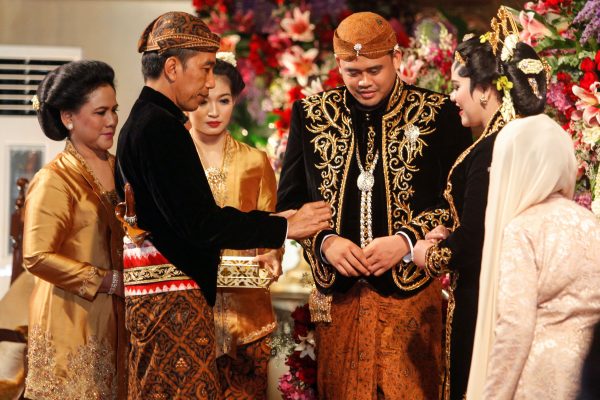Two elections are drawing special attention from the public. The first is the mayoral election in Solo, a medium-sized city in Central Java, where Gibran Rakabuming Raka — the eldest son of President Joko ‘Jokowi’ Widodo — will vie against an independent candidate. The second is in Medan in North Sumatra, where Jokowi’s son-in-law Bobby Nasution will compete against the incumbent mayor. Despite having no prior experience in politics or genuine interest in taking a role in public office, both Gibran and Bobby easily won nomination from the ruling PDI-P party.
The nomination of Gibran has received particularly critical scrutiny. Throughout his father’s presidency, Gibran insisted that he had no interest in getting into politics and opted to concentrate on his culinary business instead. But in September 2019 — in an event intensely covered by the press — Gibran showed up at PDI-P’s Central Java provincial office to register himself as a party cadre and declare his interest in running in the mayoral election in Solo.
Initially, neither Gibran nor Bobby got support from local PDI-P leaders in the two cities whose mayoralties they are contesting, with local branches initially supporting incumbents with backgrounds in the party. Yet these decisions were unilaterally annulled by the PDI-P chairwoman, former president Megawati Sukarnoputri.
In addition to Gibran and Bobby, a number of other family members of national political elites are running in December’s elections. The daughter of Vice President Ma’ruf Amin, Siti Nur Azizah, is running as vice mayor of South Tangerang, Banten. She will compete against Rahayu Saraswati Djojohadikusumo, who is running for the same position with the support of her uncle, Defence Minister Prabowo Subianto. In Karawang, West Java, Vice President Ma’ruf’s grandson, Adly Fairuz, is competing to become the deputy district head, and Hanindhito Pramono, the son of Cabinet Secretary Pramono Anung, is running unopposed to become the district head in Kediri, Central Java.
These developments on their own would be indicative of a growing political dynasticism in Indonesia. Yet the data show that those names are just a small part of a bigger story. the political scientist Yoes Kenawas counts 202 dynastic candidates who ran in elections from 2015 to 2018 — 117 of whom were elected. In the 2020 elections, there are at least 146 members of dynasties who have shown their intent to run for regional office, a sharp surge from the 52 who competed in the same jurisdictions when they last went to the polls in 2015.
Many Indonesians outside Jakarta understand how widespread the practice of relegating or expanding power from officeholders to their families is. Indonesians also know that regional head elections are not the sole channels for the dynastic members to maintain power — they can run in parliamentary elections at both national and local levels.
But what struck people most this time was perhaps Jokowi’s direct interference in the democratic system. By allowing inexperienced family members to run for office, Jokowi scrambled the bottom-up nomination processes run by his party, PDI-P. He has not made any public comment on this matter. (Jokowi’s brother-in-law, Wahyu Purwanto, almost ran for the district head in Gunungkidul, Yogyakarta, though pulled out at the president’s request).
This phenomenon is in stark contrast to Jokowi’s early image. He came to prominence as a figure who emerged from outside any old established dynasty. Jokowi’s behaviour suggests he is currently organising the ‘post-Jokowi’ era — given that according to electoral law the next round of concurrent elections will happen nationally in 2024, when he reaches the end of his second term.
The instances of dynasty-building in the 2020 concurrent regional elections might just be a symptom of an institutional problem which the current electoral rules are inadequate. But another possible factor is the need on the part of political families to maintain existing networks formed from formal and informal relationships between financiers, enforcers, activists and individual political leaders — as the patterns of dynasty formation in other countries such as Bangladesh have shown.
This might be applicable to Indonesia, particularly in many regions outside Java where kinship networks are more prevalent in politics. The election, apart from ensuring elite turnover at the local level, could also be used to reinforce these networks.
Noory Okthariza is a researcher at the Centre for Strategic and International Studies Indonesia.


I have a question about the last sentence of the 5th paragraph which mentions that Kediri is a district in Central Java. But as far as I know it was a district in East Java. Or does it really exist?